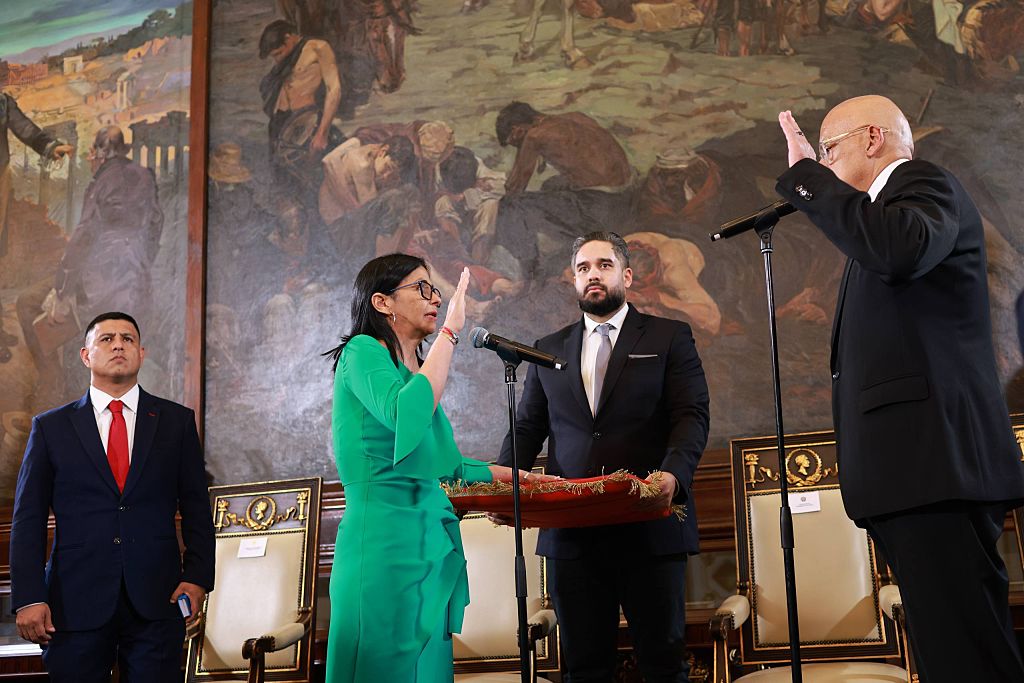What Would Jack Ryan Do?
What Would Jack Ryan Do?
In a recent op-ed, Republican Representative Roy Blunt advocates that the U.S. Congress must pass the Colombian Trade Promotion Act to ratify support for both our closest ally in the region and domestic exporters as well.
When most Americans think about Colombia, they probably think of Harrison Ford's portrayal of Jack Ryan, a CIA operative barely avoiding death in a lawless, thuggish, failed state effectively ruled by drug lords in "Clear and Present Danger." After all, that 1994 movie grossed more than $122 million in domestic ticket sales.
Obviously, few people who viewed the movie then realized that just three years before it was released, Congress had passed the Andean Trade Preferences Act (ATPA). Originally conceived as a way to provide crucial aid and regional support to our friends and neighbors in the hemisphere, the objective was to combat the production and trafficking of illicit drugs by introducing bilateral trade as a legitimate structure of commerce — a new way of doing business that some day could be used to build a new economy. For obvious reasons, Colombia was included in the program.
The plan then was simple: By creating an economic foundation capable of generating long-term peace and prosperity in their region, a similar level of peace and prosperity could be achieved in ours. But with those expectations came a key recognition: ATPA was to be used as a means to an end, not as an end in itself.
Well, the Colombia Jack Ryan survived is long gone, replaced today by a democratic nation with thriving institutions and greater security than ordinary Colombians have experienced at any stage in their lifetimes. But guess what isn't gone: those 17-year-old trade preferences. Next week the antiquated ATPA will be extended once again, though, by every measure, Colombia is ready for a permanent free trade deal that will help consolidate the gains it achieved with U.S. aid and support.
Unfortunately, our inability to make good on past commitments to close neighbors has had serious ramifications for exporters here at home. Under the preference program, Colombians benefit from an arrangement with us in which the following terms are observed: Goods and services produced in our country are subject to tariffs and duties when sent abroad, but imports made and sent from their country are allowed free and unfettered access to our markets at home. Just last year, for example, a full 92 percent of Colombian exports entered the U.S. duty-free.
While that means lower prices and greater availability for American consumers, it means something entirely different for the 8,000 American producers that export their products to Colombia. For these businesses — 85 percent of them small and medium-sized — their ability to break into a market of 45 million depends on their ability to be competitive on price. And with an average tariff of 11 percent slapped on the goods they send south, it can surprise anyone that they could be doing much better if given a chance to compete on a level playing-field.
Remarkably, Congress has the power to provide just that. Our country has already negotiated a formal trade agreement with Colombia that would, on the very first day, eliminate tariffs on more than 80 percent of U.S. exports of consumer and industrial goods, with remaining duties phased-out altogether in following years.
In my home state of Missouri alone, the result would be a 36.2 percent increase in processed food exports, a 22.6 percent bump for our chemical manufacturers, and a nearly 15 percent jump in the state's machinery business.
Nationally, the numbers are even more striking. The final step in this process remains for Congress to pass that agreement into law.
Unfortunately, some in Congress who continue to tout the merits of trade preferences for Colombia are the same folks preventing a floor vote on the permanent trade deal. They know ATPA was a temporary program designed to aid critical allies and test the waters with would-be partners before entering into long-term trade pacts.
Further, they know Colombia has taken real and concrete steps to reduce violence within its territory. They know Colombia's democratically elected leaders depend on the kinds of jobs this deal would create to re-integrate reformed criminals into society. But for too many lawmakers, no Colombian reforms are deemed enough — and no amount of facts, figures or testimonials about the benefits of this agreement for American workers can overcome the reflexive opposition of some on trade.
Presented with U.S. paralysis on this and other trade issues, a raft of other countries in the region are aggressively seeking to capitalize. Hugo Chavez is actively working to undermine the democratic Colombian government by advancing the argument that Colombians can no longer rely on the United States as an ally.
Congress' failure to pass the Colombian trade deal may just be the smoking-gun example Mr. Chavez needs to make his case. Our reputation as a global leader is at stake. And the world is watching how Congress responds to this challenge.
Given no alternative, I plan on voting later today to extend the current Colombian trade preference program. But we can and should do better by our Colombian allies and by American workers who depend on exports for their livelihoods.
Congress must pass the Colombian Trade Promotion Act.
Roy Blunt, Missouri Republican, is a member of the U.S. House of Representatives.
Used with permission of the Washington Times. Copyright 2008. All rights reserved.








